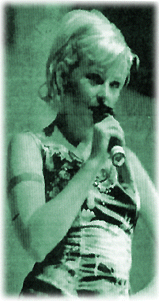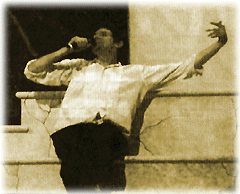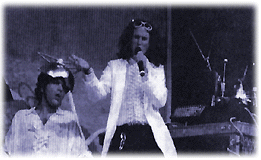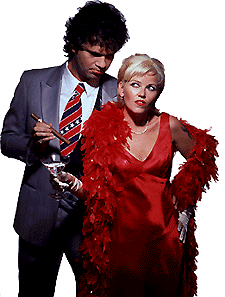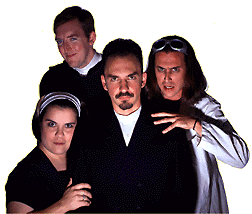 Kinks Opera ‘Preservation’ Revived By Boston Theater
Kinks Opera ‘Preservation’ Revived By Boston Theater
New England thespian group’s update of veteran Brit band’s work takes to the stage Friday
VH1 (Oct. 2)
by Contributing Editor Colin Devenish
Kinks leader Ray Davies said he recognizes similarities between plot of “Preservation” and recent scandal in Washington, D.C.
Kinks leader Ray Davies hadn’t given permission for anyone to perform a full production of their rock opera “Preservation” since the seminal British rock outfit performed the piece during its 1974 tour.
Surely he had his reasons.
But after seeing a rehearsal of the recently revived work Sunday, Davies said he feels he’s done the right thing by letting the Boston Rock Opera give the piece a go.
“I was very impressed with what they’re doing,” said singer/guitarist Davies, 54. “They’ve done it before in a club, but I thought it was better in a bigger space. It’s a nice theater. The music was very well-presented, well-done — I dare say up there with the Kinks’ performance. Very tight, very true to the record.”
Staged in the Tower Auditorium in Boston, a 450-seat theater on the Massachusetts College of Art campus, the Boston Rock Opera’s production of “Preservation” begins Friday (Oct. 2) and continues through a three-weekend run that ends Oct. 17.
With musical selections culled from two Kinks albums, Preservation Act 1 (1973) and its 1974 follow-up, Preservation Act 2, the current production by the New England-based theater company is set in “the Village” and traces the struggle of the villagers in choosing between Machiavellian leader and cold-hearted real-estate magnate Mr. Flash and his seemingly squeaky-clean rival, Mr. Black, a choice that proves to be little better than hopping out of the frying pan and into the fire.
Tossing aside her guitar and mic, Kay Hanley of Boston-based poppers Letters To Cleo plunged into the role of Mr. Flash’s longtime love interest, Belle, joining a cast that includes Boston Rock Opera co-founder Mick Maldonado in the role of Mr. Flash.
“I love the role of Belle. In very cliched terms, she’s the ‘hooker with the heart of gold,’ ” said Hanley, 30. “She has a complicated relationship with Flash that leads her to do the wrong thing when she thinks she’s doing the right thing. It f—s it all up and in this case it moves the story along.”
Based on his viewing of the rehearsal, Davies noticed several basic differences between the Boston Rock Opera’s version and the one his legendary pop-rock act took on the road nearly 25 years ago.
“The Kinks’ one was a lot wilder, and I think [in] this one Eleanor [Ramsay, director of the production] is focusing on certain issues: village greed, corruption in Parliament. I think [in] this one there are more people on the stage. We had six extra singers with us but we were never able to present it in a theatrical way.”
Ramsay, co-founder of the Boston Rock Opera — whose past productions include “The Rocky Horror Picture Show” and a reading of “Jesus Christ, Superstar” with Gary Cherone, newly acquired frontman of the pop-metal act Van Halen, in the title role — said the set itself mirrors the crisis in the sickened village.
“It’s a stylized set, essentially like a facade painted so that it has cracks in it. The entire set looks ready to crumble,” Ramsay said. “The costuming is hand-painted, so it has almost a cartoonish or nightmarish quality to it. The entire thing could almost be a bad dream. Everything has a facade on it or a faux covering. It ties in with the characters and fronts people put on and people do behind their back.”
The similarities between the basic plot of “Preservation” and the recent political machinations in Washington, D.C., were not lost on Davies, whose description of one scene from the play could have just as easily been describing President Bill Clinton’s month-long mea culpa for his involvement with ex-White House intern Monica Lewinsky.
“It is a sign of our times. Mr. Flash appeals to the nation about what a hard life he’s had,” Davies said. “But, in the end, although he’s a manipulator and a great showman, he’s undone by the media.”

